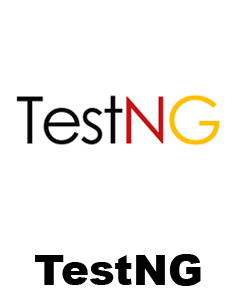1. How can software testing be defined and why is it important?
Ans:
The method of assessing an application to make sure it satisfies requirements and performs as intended is known as software testing. It plays a vital role in detecting defects and issues before the product reaches end-users. By ensuring quality, minimizing errors and delivering a dependable product, testing enhances user satisfaction and builds trust in the software.
2. In what ways do validation and verification differ in software testing?
Ans:
The main goal of verification is to make sure that the software is produced in accordance with established procedures, guidelines and documentation, thereby verifying that the product is being constructed accurately. Validation, however ensures that the final product meets the actual needs of the users and functions as intended. In short, validation is about developing the proper product whereas verification is about building the product correctly.
3. What are the main levels of testing used in software development?
Ans:
Software testing typically operates across four primary levels. Unit Testing targets individual components or modules. Integration testing makes ensuring that several modules function as a unit. System Testing examines the entire system as a whole. Finally Acceptance Testing verifies that the product meets business requirements before it is delivered to the client or end-users.
4. What does the Software Testing Life Cycle (STLC) consist of?
Ans:
The Software Testing Life Cycle is the structured approach to testing, consisting of distinct phases such as requirement analysis, test planning, test case design, environment setup, test execution and closure reporting. Following the STLC ensures that the testing process is organized, thorough and effective in achieving quality objectives.
5. How are black box testing and white box testing different?
Ans:
Black box testing evaluates the functionality of a system by focusing on inputs and expected outputs without considering the internal code structure. This approach ensures the software behaves as required. White box testing, on the other hand, examines the internal logic, code structure and execution paths, making it more technical and generally performed by testers or developers with coding expertise.
6. What does test case prioritization involve?
Ans:
The process of ranking test cases according to their significance and possible impact is known as test case prioritization. This method helps maximize efficiency by focusing on high-priority functionalities that are more likely to have defects which is especially beneficial when testing time is limited.
7. How can regression testing be explained and what is its purpose?
Ans:
Software changes like bug repairs or the addition of new features are followed by regression testing. Its main purpose is to confirm that existing functionalities remain unaffected by these changes. This process helps prevent the introduction of new defects while maintaining system stability.
8. How does non-functional testing differ from functional testing?
Ans:
Functional testing ensures that software features work as intended such as validating login processes or data transactions. Non-functional testing, in contrast, evaluates aspects like performance, security, usability and scalability, focusing on how the software operates under various conditions rather than what it does functionally.
9. What is a test plan and what are its key components?
Ans:
The official document that describes the overall testing approach for a software product is called a test plan. It includes details such as objectives, scope, resources, timelines, tools, roles, responsibilities and identified risks. Serving as a guide for the testing team it ensures all critical aspects are addressed for a successful testing phase.
10. What is boundary value analysis in the context of software testing?
Ans:
A testing method called boundary value analysis creates test cases with values at the very end of input ranges. Since defects often occur at these limits, this method checks values just below, at and just above the boundaries to ensure that the application handles edge cases correctly and maintains robust validation.


























